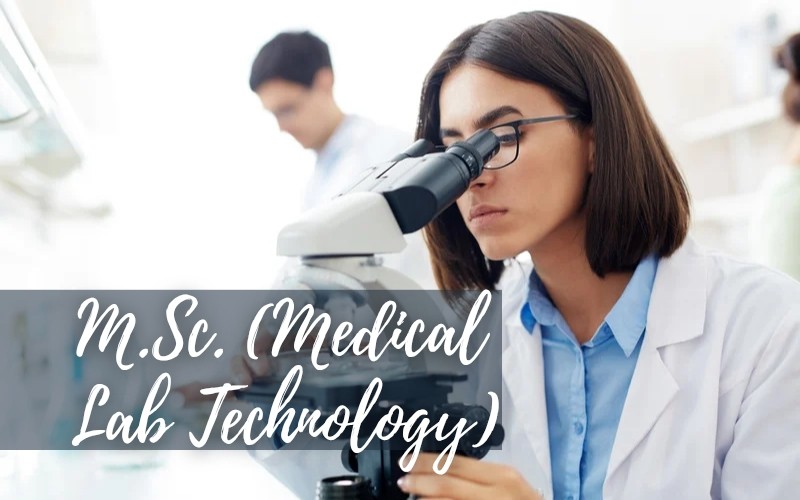Admission Enquiry

The accuracy of a diagnosis is the foundation of effective treatment — and that responsibility rests with skilled medical lab professionals. The M.Sc. in Medical Lab Technology at NIILM University is an advanced postgraduate program that prepares students to become expert diagnosticians and essential contributors to the healthcare system.
Through a rigorous curriculum that combines theoretical knowledge with extensive hands-on training, students gain proficiency in modern diagnostic techniques, clinical biochemistry, microbiology, pathology, and advanced laboratory management.
Advanced, Research-Based Curriculum
Includes core areas such as clinical biochemistry, hematology, molecular biology, microbiology, cytogenetics, and lab management.
Extensive Practical Training
Real-time lab experience and clinical rotations in hospitals, diagnostic labs, and research facilities.
Experienced Faculty & Mentorship
Learn under the guidance of medical scientists, pathologists, and laboratory technology experts.
Modern Diagnostic Equipment
Training on automated analyzers, ELISA, PCR machines, microscopes, and laboratory information systems.
Career & Research Focused
Emphasis on quality control, lab safety, clinical reporting, and research methodology.
Clinical Biochemistry & Enzymology
Hematology & Blood Banking
Medical Microbiology & Virology
Histopathology & Cytology
Molecular Biology & Genetic Diagnostics
Laboratory Management & Quality Assurance
Immunology & Serology
Research Methods & Biostatistics
Senior Laboratory Technologist
Clinical Research Coordinator
Pathology Lab Manager
Molecular Diagnostic Specialist
Hospital Lab Supervisor
Quality Control Officer
Medical Lab Consultant
Academic Faculty / Researcher
Public Health Laboratory Analyst
The M.Sc. in Medical Lab Technology at NIILM University prepares you to work behind the scenes where every test, slide, and sample has life-changing impact. As technology continues to advance, the demand for highly trained lab professionals continues to rise.

Engaging, interactive content designed for modern, digital learning environments.

A well-designed curriculum that fosters skill-building through systematic learning.

Efficient, realtime assessments to track and enhance student progress.

Cutting-edge technology integrated across the campus for an immersive learning experience.

Robust industry connections to facilitate valuable internships and secure placements.

We select the best faculty to ensure exceptional education and expertise.

Focused training aligned with industry needs to boost career readiness.

Access to State-of-the-art computer labs for hands-on technical skill development

Copyrights © 2024 NIILM UNIVERSITY. All rights reserved.